When police officers seized the Paris property of Equatorial Guinea's vice-president Teodoro Nguema Obiang Mangue, they discovered a home that resembled a private museum. Inside this luxury 101-room building at 42 Avenue Foch in one of the French capital's most exclusive districts was a veritable treasure trove of late 19th century masterpieces. Works by Renoir, Degas, Chagall, Matisse, Monet and Toulouse-Lautrec, bought for a total of nearly 104 million dollars, lined the walls. According to documents seen by Mediapart, this astonishing collection of art amassed by Teodoro Obiang – usually known as Teodorin to distinguish him from his father the country's long-serving president - was paid for by plundering the wealth of Equatorial Guinea, which is rich in natural resources but where more than half of the people live in abject poverty.
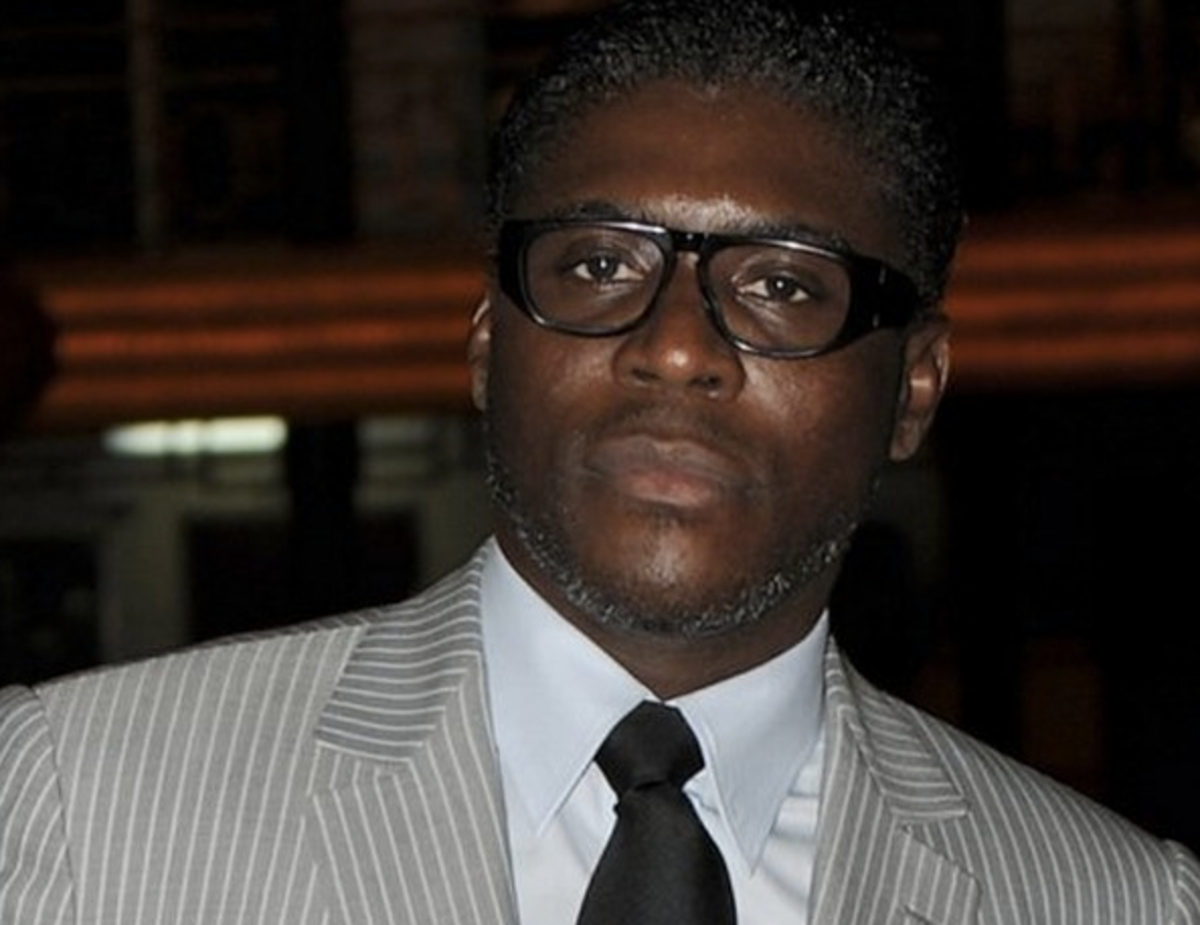
Teodorin Obiang, whose father has been in power in since 1979 having won a string of presidential elections with more than 95% of the vote, also holds the posts of defence and interior ministers. But it was in a previous position as minister of agriculture that Teodorin Obiang was able to use the massive timber wealth of his country to amass a fortune in art, luxury items and property. He is one of a number of African leaders being investigated by French investigating magistrates Roger Le Loire and René Grouman in what has become known as the 'biens mal acquis' or 'ill-gotten gains' affair, and he is now under formal investigation for “money laundering”.
As part of the investigation, police officers from France's Central Office for the Repression of Major Financial Crime (the Office central pour la répression de la grande délinquance financière), have drawn up a list of the 13 paintings acquired by 45-year-old Teodorin Obiang between 2008 and 2009 at sales held by auction house Christie's around the world. Based on information it has received, Mediapart can now reveal the full details of those paintings.
The first sale took place on May 6th 2008 in New York. On that day Teodorin Obiang bought five paintings for 27,890,000 dollars:
- Au théâtre, la loge ('At the theatre, the theatre box') by Pierre-Auguste Renoir (6,089,000 dollars).
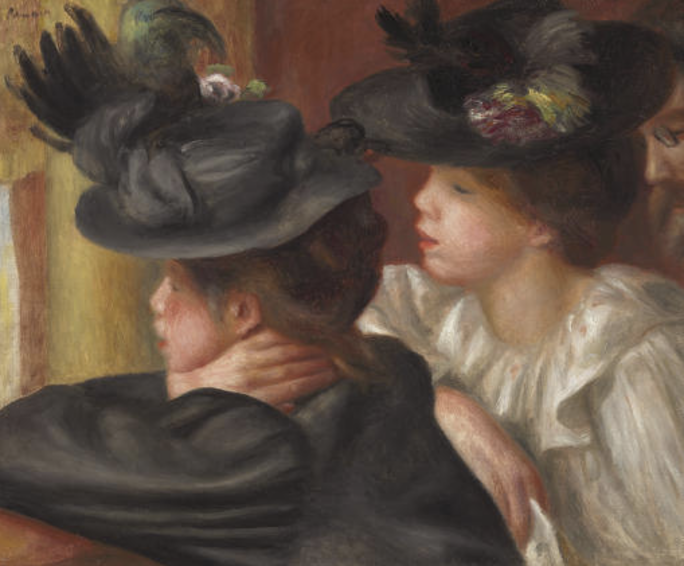
Les Trois Danseuses ('Three dancers') by Edgar Degas (4,297,000 dollars).
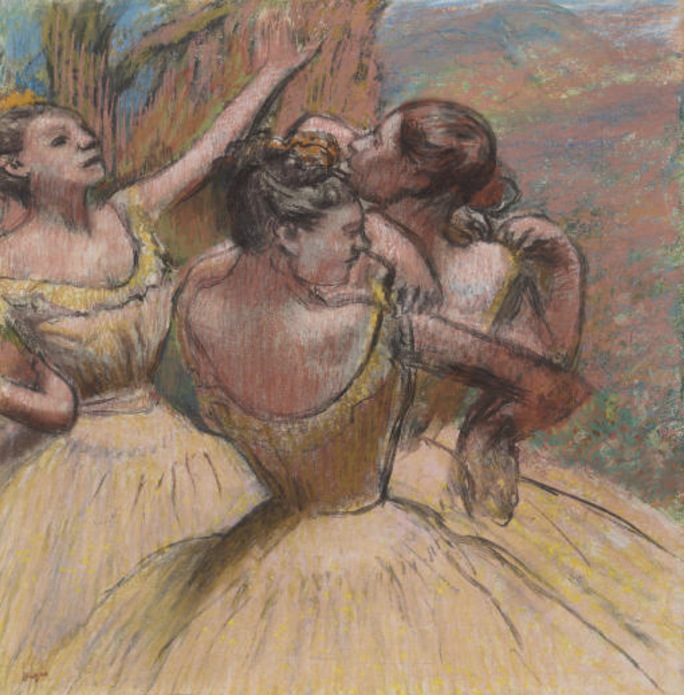
Te Fare Hymenee (La Maison des chants) ('The house of songs') by Paul Gauguin (8,441,000 dollars).
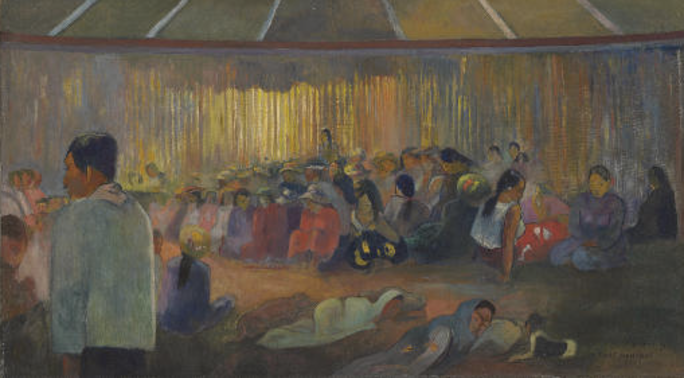
La Danseuse ('The dancer') by Henri Matisse (8,441,000 dollars).
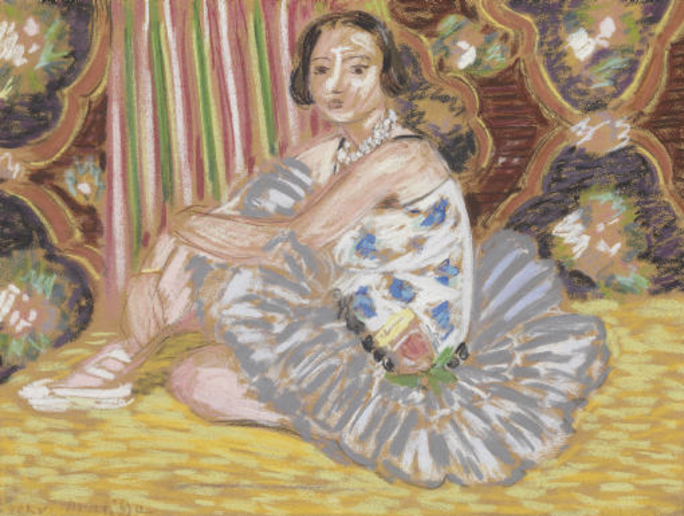
La Jeune Femme peignant ('Young woman painting') by Pierre Bonnard (601,000 dollars).
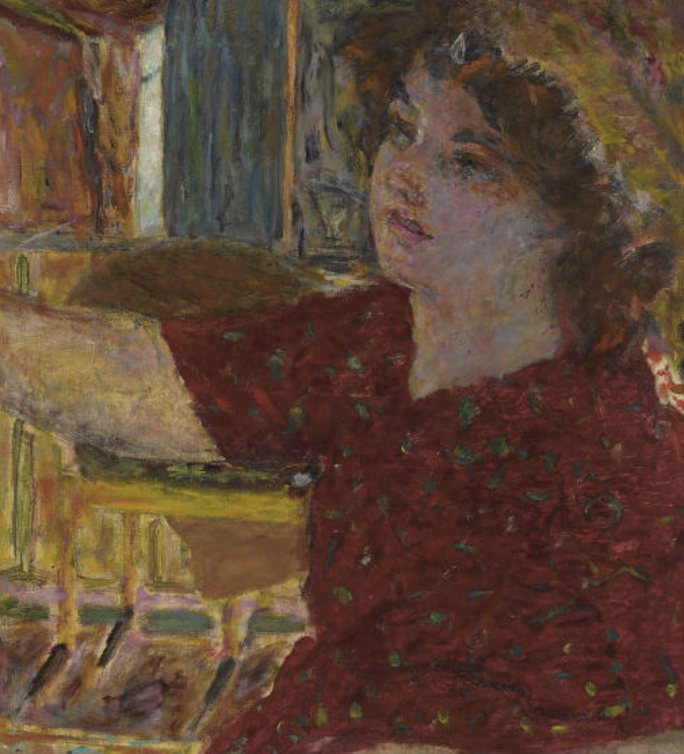
Thanks to bank details provided by Christie's, the police saw that the 27,869,000 dollars had been drawn on an account opened at JP Morgan Chase bank in New York in the name of the “presidency” of Equatorial Guinea. The transfer of funds went through France via the Natexis/Banques Populaires group, as the bank transaction slip below shows:
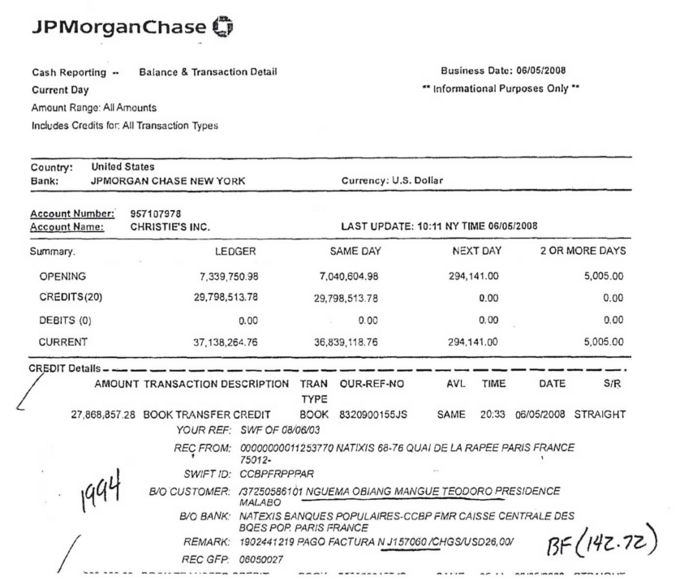
Enlargement : Illustration 7

Around the world with Christie's...
The second Christie's sale took place on the same day, May 6th 2008, but in Paris. This time the art purchased was not a painting but two bronze sculptures by Rodin for a total of 2.3 million dollars. One of the works was 'Frère et Sœur' ('Brother and sister'), which was described by the auction house as a “a testimony to Auguste Rodin's passion for his muse Camille Claudel”.
The third sale took place three weeks later, in Hong Kong. Here the dignitary from Equatorial Guinea snapped up a sublime Chinese imperial Qianlong clock, dating from the late 18th century, and valued at four million dollars according to an expert hired by Teodorin Obiang. A month later, on June 24th, 2008, the destination was London. Two more paintings were bought by Obiang, who was never publicly revealed as the buyer in any of these purchases:
Trois Danseuses ('Three dancers') by Edgar Degas (8,390,000 dollars).
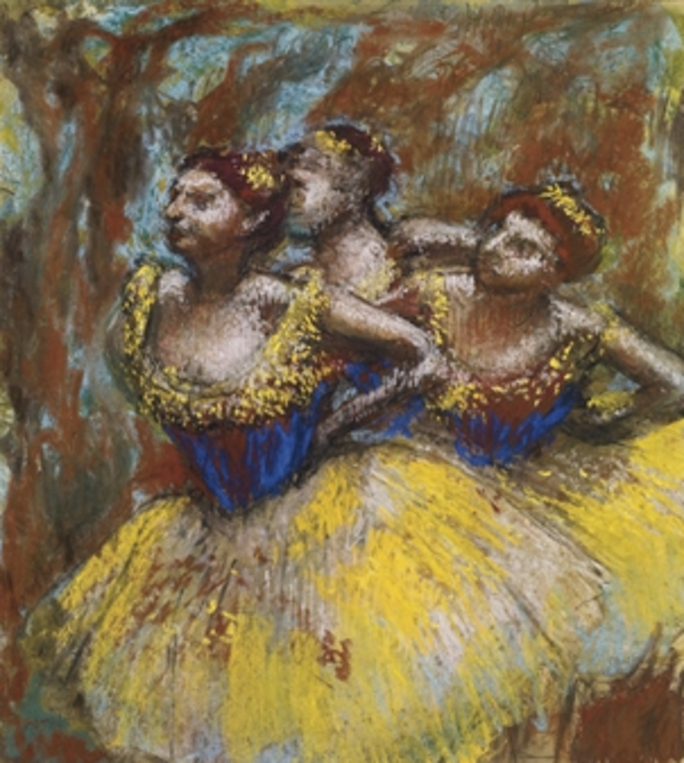
Nu sur fond rouge ('Nude on a red background') by Marc Chagall (1,874,000 dollars).
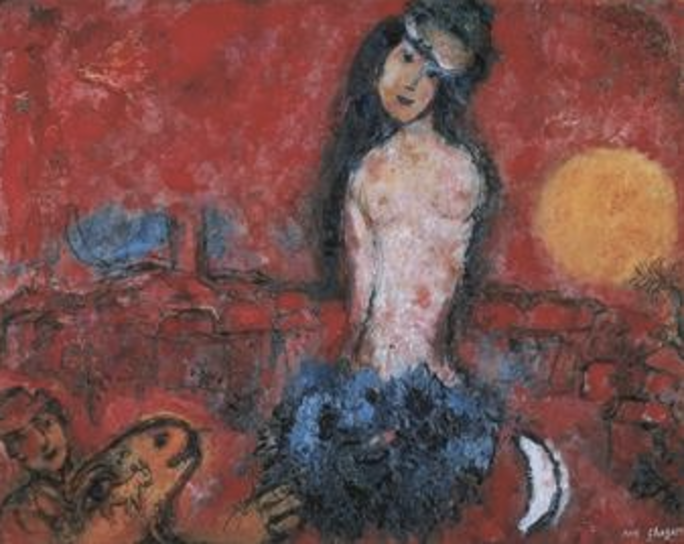
On February 4th 2009 Teodorin Obiang once again took part in a Christie's auction in London, shelling out 16,164,918 dollars for a famous Claude Monet painting 'Dans la prairie' ('In the meadow') which shows the painter's partner Camille Doncieux casually reading in the long grass:
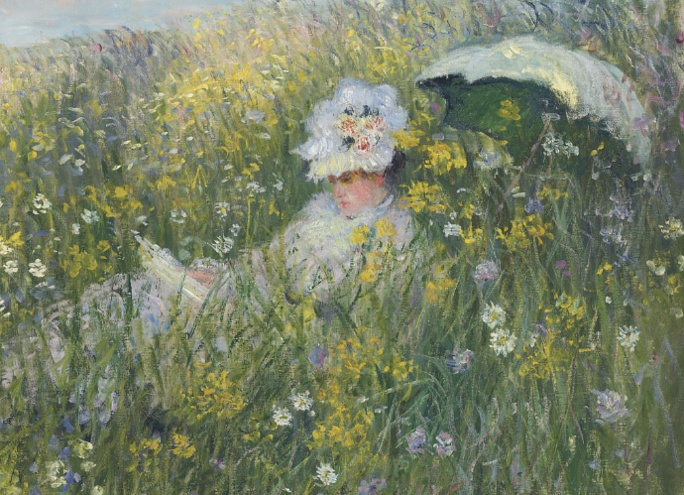
Enlargement : Illustration 10

He also bought:
- L’Abandon ('Abandonment') by Toulouse-Lautrec (8,917,398 dollars).

Enlargement : Illustration 11
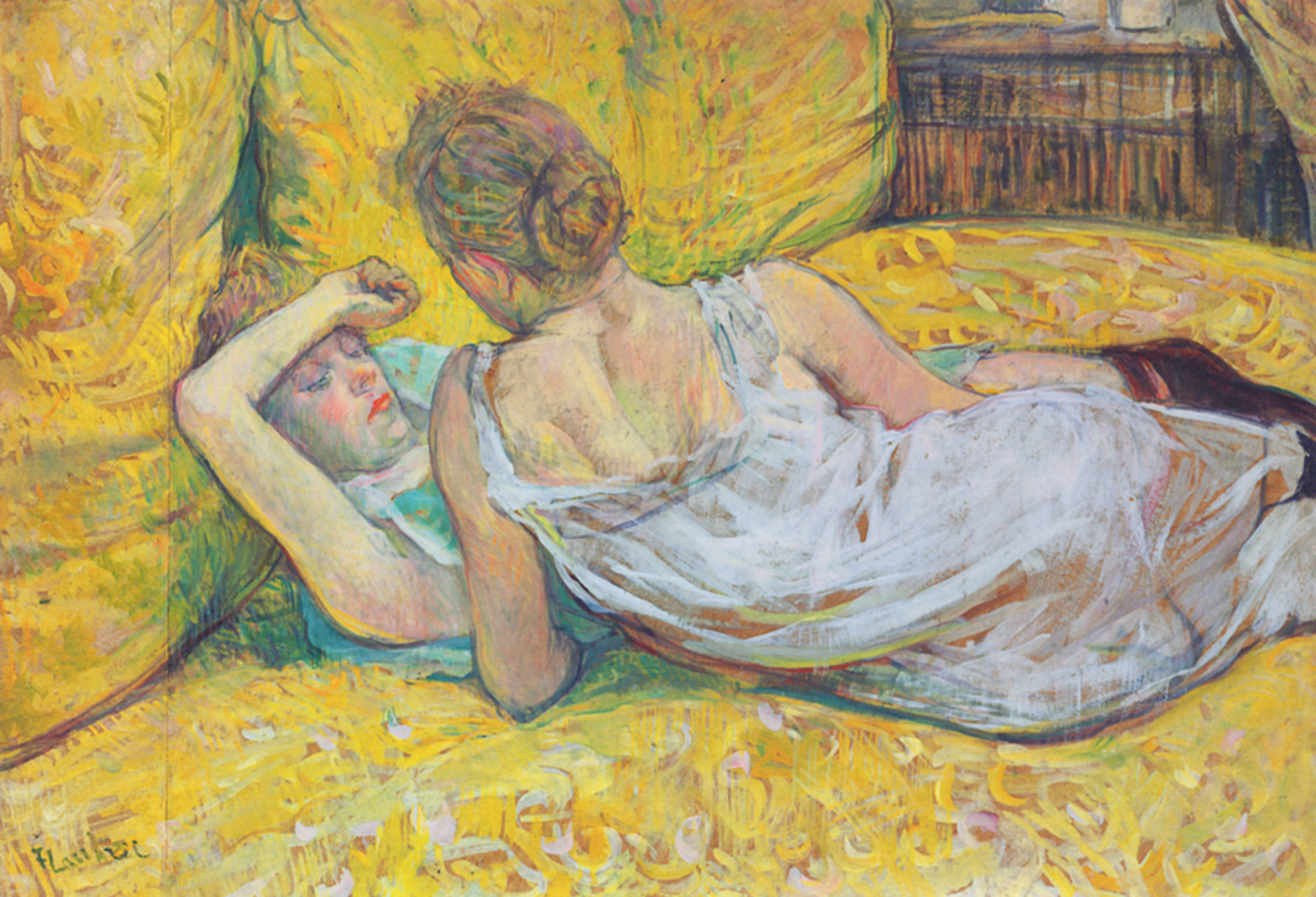
Femme aux deux colliers ('Woman with two necklaces') by Kees Van Dongen (1,911,462 dollars).

Enlargement : Illustration 12

La Gitane ('The Gypsy') also by Kees Van Dongen (1,589,350 dollars).

In April 2009 it was back to Paris for the high-profile sale of the Yves Saint Laurent design collection by businessman Pierre Bergé. According to the investigating magistrates Teodorin Obiang spent more than 18 million euros at this auction. The money was provided by a forestry company called Somagui Forestal, owned by Obiang. This company is said to be at the heart of the system of misuse of funds that is being unravelled by the two judges.
Two former French ambassadors to Equatorial Guinea, Guy Serieys and Henri Deniaud, have told the judges that the exploitation and commercialisation of local timber which, along with hydrocarbon reserves, are one of the country's main natural assets, was a monopoly that Teodorin Obiang cornered for himself when he was minister of agriculture, using the company Somagui.
The diplomats have also explained that it was “common knowledge that a commission of around 20% was imposed by the government” on each transaction, as Le Monde newspaper has already reported. Meanwhile the managers of some firms who have done business with Somagui have told the judges than on top of the official taxes and commission imposed by the regime, they had to pay cash into Somagui's accounts, which went to the president’s son. “We await the proof,” Teodorin Obiang's lawyer Emmanuel Marsigny told Mediapart.
'A practice that is, ultimately, illegal but part of common practice and custom'
The inventory drawn up by the police of the paintings bought by Obiang also shows two other works, though the investigation has not yet been able to establish where the money to buy them came from:
- Trois Danseuses avant l’exercice ('Three dancers before exercise') by Edgar Degas (8,700,000 dollars).
- Nu à la toilette ('Nude at her toilette') by Pierre Bonnard (1,235,000 dollars).
The amount of money involved in the purchase of these wonderful works of art stands in stark contrast to the living conditions of most people in Equatorial Guinea. Though the country is among the 30 top oil producers in the world - and the third biggest producer in sub-Saharan Africa – much of its population survives in destitution, deprived of the country's wealth which is diverted by the current regime's corruption.
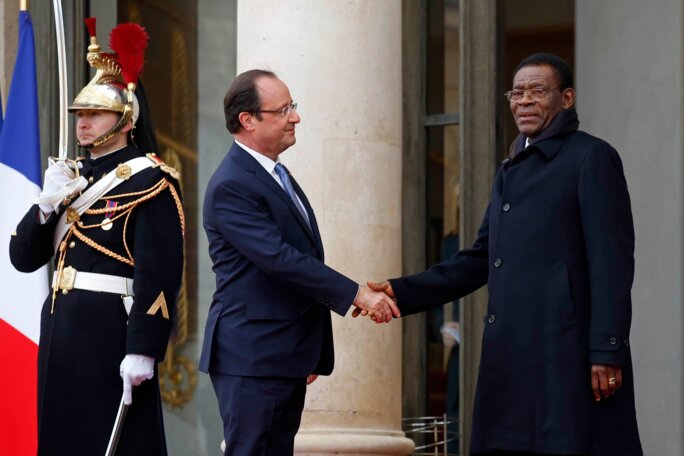
Enlargement : Illustration 14

“From a legal point of view everything my client has done is absolutely legal in [Equatorial] Guinea,” lawyer Emmanuel Marsigny told Mediapart. “There is therefore no crime to begin with. In France it might perhaps be different, but that's how it is.”
However, according to the investigating judges in France this is not the case. Nor indeed has Teodorin Obiang shied away from the reality of what he does. When questioned by a South African court in 2004, he “recognised that it involved a practice that is, ultimately, illegal but part of common practice and custom”, according to the French judges in a written note in March 2014. Meanwhile a former director of the Société générale bank in Guinea, Christian Delmas, has told the French judges that twice a year the central African country's Treasury fills Teodorin Obiang's bank account with several million euros at a time. This was not denied by Obiang's lawyer.
Yet while vice-president Obiang lives a life of luxury – the judges speak of “sumptuous expenditure” and of an “exorbitant lifestyle” - close to 80% of his people live below the poverty line, according to the World Bank. The figures produced by NGO Global Witness are even worse, suggesting that though Equatorial Guinea has a per capita income that is approximately that of Denmark or Italy, six in ten of the population survive on less than a dollar a day. The life expectancy in the country is around 51.
“Equatorial Guinea is the dictatorship that no one speaks about,” a Global Witness member told the United Nations' Office for the Coordination of Humanitarian Affairs back in 2008. In 2010 the magazine Stateco, published by France's official statistics agency INSEE, produced a damning indictment of this small central African country. “Despite rapid growth thanks to the production of hydrocarbons, poverty is growing and living conditions for the majority of the population are getting worse...It is growth without development,” the authors wrote.
However, the extravagant expenditure of Teodorin Obiang has continued to mount up. In addition to the art masterpieces he enjoys buying, he has a taste for luxury goods. For example, the police have been able to establish that the vice-president spent 9.5 million euros at the Parisian antique dealer Jean Lupu, while a further 11 million euros were spent at the jewellers Dubail Bijouterie in place Vendôme in Paris.
Between 2004 and 2007 Teodorin also paid cash to settle the bills for his stays at the exclusive Le Crillon Hotel in Paris, the total amounting to 587,833 euros. From 2007 the bills were paid by money transfer from the company Somagui and another similar company Socage, the total coming to 510,739 euros. On top of this, the judges have found that Obiang spent a total of 250,000 euros on bottles of Romanée-Conti, one of the world's most highly-regarded – and expensive – red wines.
The Somagui company has certainly been very active. In addition to the expenditure outlined above it has also paid out 5 million euros for nine of Obiang' stable of 18 classic cars, which include a Bentley, Maserati, Rolls Royce and a Bugatti. “In no way can these be official vehicles used by staff at the Equatorial Guinea embassy,” note the judges. The investigation has also established through documents and witness statements that Teodorin Obiang was indeed the owner of the building at 42 avenue Foch, where the paintings were kept, via a succession of Swiss-based companies. The value of the three-floor maisonette, which the judges say has 101 rooms, was estimated at 107 million euros in May 2012 by the public finance and tax body the Direction régionale des finances publiques.
Moreover, “the search [editor's note, in 2012] allowed one to see that in no sense was it an official building but that the 101 rooms that make up your three-floor maisonette were of an exclusively private nature”, the judges stated in a series of written questions addressed directly to Obiang in March, something which contradicts the official line from the Equatorial Guinea authorities. “M. Obiang has never sought to hide! He has declared everything to the French tax authorities,” said his lawyer.
A woman called Françoise M. - her full name has been withheld – is very familiar with the building, having been in charge of its upkeep from December 2008 to July 2009 after having worked for the Bettencourt family. When the judges questioned her in June 2012 it gave them an insight into the daily life of an extraordinary, dissolute world. Teodorin Obiang had to be addressed as his “excellency”, she told police officers. “He only used cash...I never saw him with a cheque book or a credit card,” said Françoise M.
According to the housekeeper one story summed up his character. In the spring of 2009 the luxury goods firm Dior was pressing to get Teodorin Obiang to pay an unpaid bill for 53,000 euros. Urged by the housekeeper to settle the debt, his “excellency” said he had no time to deal with the matter – he had to fly off to Brazil straight away. Instead he took the housekeeper on board the plane with him, where in mid-flight an accountant gave her 70,000 euros in denominations of 200 and 500 euros, all of them new notes. Françoise M. did not even set foot on Brazilian soil. “I just went straight back,” she told the investigators. The money was then used to settle the Dior bill upon her return to Paris. Mediapart has not been able to contact the housekeeper.
Having been put under formal examination – one step short of being charged - for “money laundering”, Teodorin Obiang refused to answer judges Roger Le Loire and René Grouman during his questioning by video conference on March 18th. Instead, he claimed presidential immunity: “As second vice-president of the republic of Equatorial Guinea in charge of defence and state security since May 21st 2012, I benefit, in this capacity, and according to international custom, from complete immunity of jurisdiction with regard to foreign civil and criminal jurisdictions during the period I exercise my functions.”
Obiang added: “The government of the republic of Equatorial Guinea having not lifted this immunity or waived this immunity, it is consequently impossible for me to respond to any question whatsoever.” As far as his lawyer in Paris is concerned, Teodorin should benefit from the same immunity in his position as any head of state in the world.
-----------------------------------------------------------------
The French version of this article can be found here.
English version by Michael Streeter


